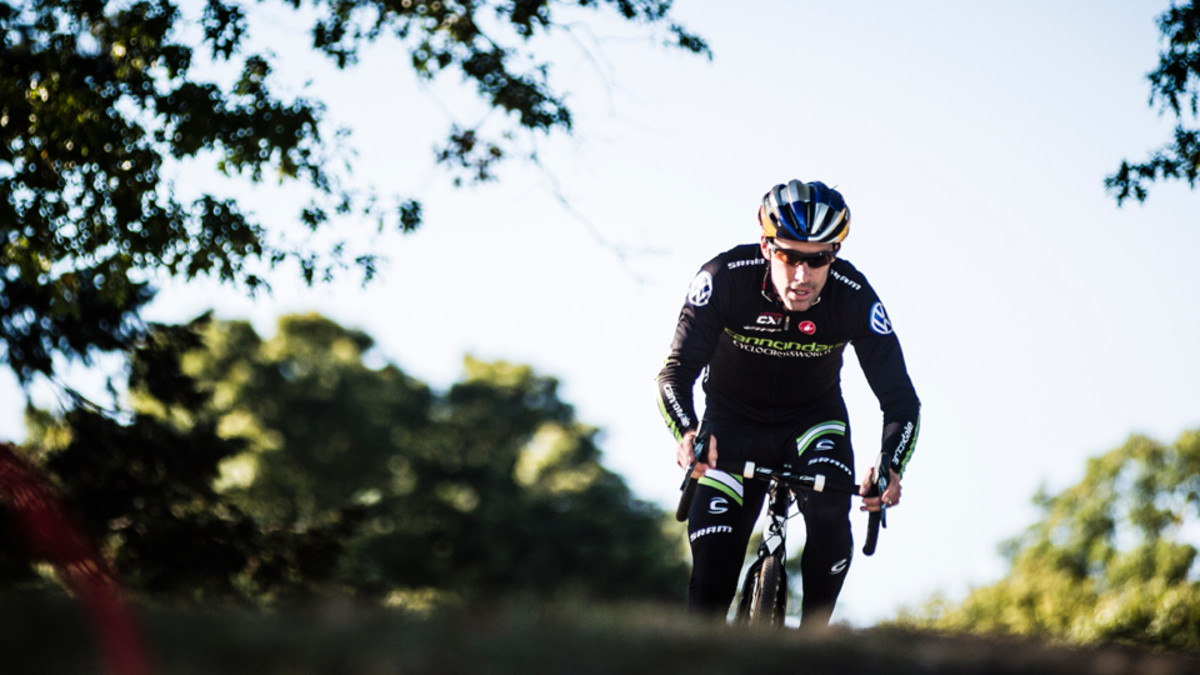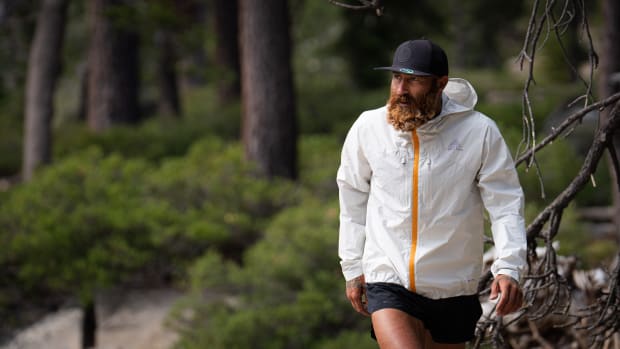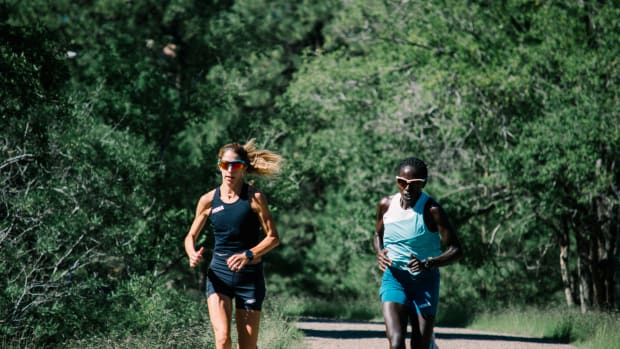
Cyclocross’ Tom Brady nears the end of his road
He’s an immensely popular New England athlete who has excelled at his sport for the better part of a decade and a half, capturing multiple championships, often in atrocious weather. He has remained at the top of his game well into his late 30s, capable of winning on any weekend. His boyish good looks have launched numerous ad campaigns and magazine photo shoots. And his beautiful wife from a foreign country is more than capable of turning heads on her own.
Tom Brady, right? Nope. It’s Tim Johnson, the pride of Massachusetts and the country’s most accomplished cyclocross racer. Granted, Brady is one of the NFL’s brightest lights, while Johnson has toiled in relative anonymity in the niche-but-emerging discipline of cyclocross. But the similarities between the New England Patriots quarterback and Johnson are uncanny.
The 37-year-old Johnson has been the face the U.S. cyclocross for the past 15 years. In 1999, he burst onto the international scene as the first American to podium in the UCI World Cyclocross Championships, pedaling to a bronze medal in the junior category in Slovakia. Today, Johnson is a six-time national champion, with three elite titles, two Under-23 championships and a junior crown on his résumé.
Last year, Johnson ranked second in the U.S.—and made the top 20 in the world rankings—and took third at the National Cyclocross Championships in Colorado in January. In February, he competed in the world championships as a member of Team USA for the 14th time. Before this season, Johnson was optimistic that he could improve on those results.
Grueling yet addictive, cyclocross pushes boundaries of physical limits
“I feel like I still know how to drive it,” he said.
Johnson’s unparalleled run, however, could end this weekend, at the U.S. National Cyclocross Championships in Austin, Texas. While Brady plays in yet another postseason with the Patriots, Johnson acknowledged he won’t make Sunday’s starting line, two decades after his first Nationals. That’s because of similarities with another Boston icon—Larry Bird.
Like Bird, Johnson is battling the cumulative wear-and-tear of a brutally tough sport, and his lower back has absorbed the brunt of that punishment. Weighing only 155 pounds, with less than 10 percent body fat, Johnson has fallen prey to the rigors of cyclocross’s signature move—a dismount, quick sprint over obstacles or uphill, and remount.
That repetitive pounding led to bulging discs in Johnson’s back, which impinge on key spinal nerves. A typical cyclocross weekend consists of Saturday and Sunday races. With his back injuries compounded by ceaseless travel, Johnson needed the better part of the week to recover. Then, during Saturday’s race, he would “ruin it again,” leaving him little chance of being successful on Sunday.
“With that [pattern], I couldn't stay above water,” he says. “I’d just have this really deteriorating performance, where my power would go down. I’d look at my power meter and see that I wasn’t putting anything out. My heart rate, instead of averaging 185, I’d be averaging 155. And I’d be in pain.
“That brought me to this incredible paradox of athletics, where you know you have to attack at that moment, but you can't, because your body’s just not letting you do it. I really took it hard, and I was struggling so much mentally and physically, and questioning myself. I really had to figure out what I was going to do, and how this was going to affect me as a person, and as an athlete.”
Fortunately for Johnson, his wife, Lyne Bessette, a former professional road racer, two-time Canadian Olympian (2000 and ’04) and Paralympic gold medalist (’12), helped him maintain perspective during an increasingly difficult season. But she couldn't heal his back.
Extreme Sailing: Alex Thomson preps for 90-day race around the world
Johnson was ranked fifth in the country in late November, with several top-three finishes, but his back woes led to a cruel downward spiral. By Christmas, he ranked 14th among USA Cycling's elite. After a Jan. 4 race in Dallas, Johnson said his body simply wasn’t capable of producing the power needed to be a contender.
“This isn't a retirement,” he said while driving to Austin this week. “It just means I won’t be racing nationals.
“My goal in any year is to win the [national] jersey again, and I’m not even close to that. So it’s a struggle to line up knowing that I’m not going to be at the front, competing for a win. Everything boils down to how much pain you can stand while going fast. When you're already suffering before the race starts, it just really limits you as to how fast you can go.”
Still, Johnson will attend the nationals (the first time the event has returned to Austin in 37 years) if only to enjoy the massive growth of cyclocross that the five-day event represents. Nationals will feature hundreds of racers, and thousands of spectators, at Zilker Park.
“I’m not looking at nationals as a podium or jersey hopeful, but as someone who is trying to make the most out of what I have, and to enjoy it as much as I can,” Johnson says. “It’s just a totally different identity for me.”
The premature end to his season notwithstanding, Johnson says he’ll continue working with his sponsors—Volkswagen, Red Bull, Cannondale, Oakley, and Strava—and with advocacy groups such as PeopleForBikes.
“I prefer to think of it as an evolution,” he says. “Racing has been a big part of my life for a long time, and it always will be.”
But cyclocross fans will always remember the fresh-faced kid from Massachusetts who became the country's first real star in cycling’s wildest discipline.
“He was an eager kid back in the day, and he was always hungry to learn,” says Stuart Thorne, head of Johnson’s Cannondale/CyclocrossWorld.com team and longtime confidante. “The thing about Tim, to this very day, is that he’s like a sponge. He is constantly learning and absorbing all the tricks, the tips, what’s going on around him, everything about the sport. He’s just taken it all in, and digested it, in many ways, better than anybody else. As a result, he’s figured out how to go fast, and how to maintain his level in the sport.”
If this season does mark the end of Johnson’s pro career, he will have few regrets. Despite the Tour de France and world championship victories of Greg Lemond and Lance Armstrong (whose seven Tour victories having since been rescinded), Johnson can lay claim to being one of the most versatile competitive cyclists ever produced by the United States.
“I’m most proud of fact that I’ve been multi-disciplined, at a fairly high level,” says Johnson. “I went to the world championships in road as a professional, in ’cross as a professional, and also as a mountain bike racer when I was younger. I raced the world championships in all three disciplines. I just love to ride my bike fast, whatever kind of bike it is.”






